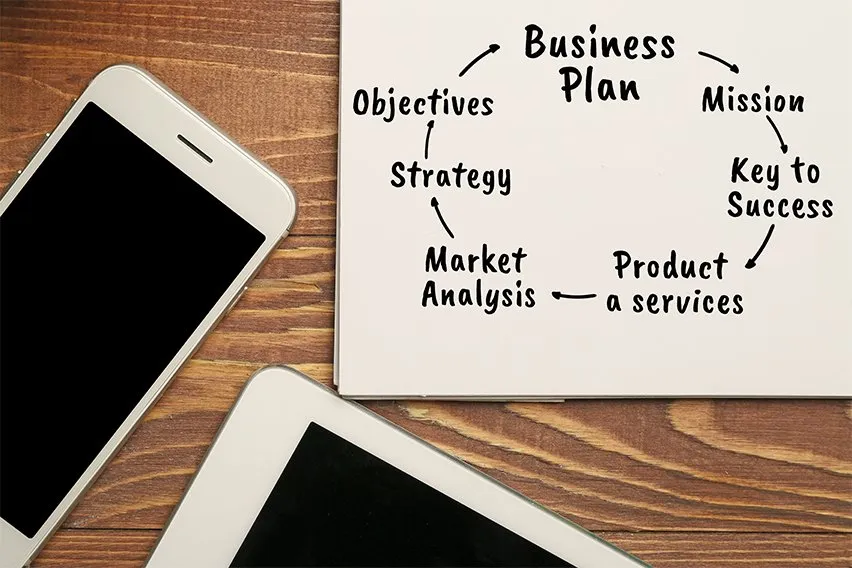What Are Performance Objectives? 5 Top Objectives

Any business’s strength depends on the performance of employees, as well as the business itself. When you’re running a small business, it’s important that it’s performing effectively and efficiently. But how can you make that happen? The best way to make sure that your business is performing adequately is by setting performance objectives. Also called performance goal-setting, these strategies can give your business a competitive edge.
Here’s What We’ll Cover:
What Is a Performance Objective?
5 Key Performance Objectives for Your Business
What Is a Performance Objective?
The term performance objective is just a fancy way of identifying a large business goal. However, it should be mentioned that goals are the results that you seek. Objectives are the way that you reach your goals. For the most part, performance objectives are related to business or employee performance. These two areas of performance are crucial to your business running smoothly.

The Key Elements of a Good Performance Objective
When you’re writing performance objectives, there are some key elements that you should look to abide by.
- Clear Language: Performance objectives need to be written with clear language. Each objective should have an action verb in it, as well. This is the action to be carried out by your business and employees. When you write a performance objective, it’s ideal to provide it in multiple forms of communication with examples.
- Measurable Outcomes: Performance objectives need to be attached to measurable outcomes. For example, if your performance objective has to do with marketing, it can be supported with marketing metrics.
- Perform with Meaning: All performance objectives need to be carried out with purpose or meaning. If things are being done without meaning, performance will be less than effective.
5 Key Performance Objectives for Your Business
When you’re writing performance objectives for your business, there are 5 that you should start with.
1. Costs
One of the first performance objectives you should set for your business has to do with costs. Of course, the cost of business operations should be considered at all times. When you’re looking to increase business performance, you should be looking to reduce costly inputs. Of course, this shouldn’t be done without consideration. Costly inputs are often necessary for a business, in certain circumstances.
2. Quality
Quality doesn’t have to do with products alone. Quality relates to any and all work being done by your business. As such, these are the second most important objectives you can write for your business, behind cost. These performance objectives are based on doing things the right way.
Often, you’ll find that quality objectives have to do with the care of customers. High-quality customer service leads to customer retention. Customer retention is important for any small business.
3. Dependability
This applies to all businesses as well, and has a lot to do with quality. However, dependability is more about doing what your business says it will. Customer expectations need to be met for dependability to be high. To be dependable, a business must fulfill its promises and commitments.
If your business has a guarantee on any of its products or services, that is a performance objective. Guarantees can be measured in a number of ways. If a product has a lifetime guarantee, but it has a high rate of return, then the objective isn’t being met.

4. Speed
Speed makes a big impact on a business’s reputation. Making a delivery on time to customers is about being dependable, but being able to do it quickly is another thing. In the world that we live in, instant gratification is important. Customers want a quick response time on nearly everything. It is important that performance objectives based on speed also have to meet quality guidelines, however.
5. Flexibility
The best way to thrive in business is by being adaptable. Adaptation makes up a big part of being successful as a small business. Many performance objectives about meeting customer needs at “any cost” rely on adaptation. Being flexible can provide a number of benefits, like better response times and cost savings. Overall, flexibility is what’s going to save you should something happen that’s out of your control. A rolling stone gathers no moss, after all.
Key Takeaways
Performance objectives are a way of making sure that your business is doing what it needs to be. Writing clear performance objectives based on the 5 areas listed above can make or break a small business. If you’re looking for more information to help you write your performance objectives, check out our resource hub. It has plenty of inspiration to help you get your business where it needs to be!
RELATED ARTICLES

 What Is Outbound Logistics: Strategies & Performance
What Is Outbound Logistics: Strategies & Performance Self-Employed Vs Employee: What’s the Difference?
Self-Employed Vs Employee: What’s the Difference? Supply Chain Planning: Process, Strategy & Benefits
Supply Chain Planning: Process, Strategy & Benefits Consignment Sales: What Is & How Does It Work?
Consignment Sales: What Is & How Does It Work? What Is Cost Breakdown Structure?
What Is Cost Breakdown Structure? 9 Essential Components of a Business Plan
9 Essential Components of a Business Plan